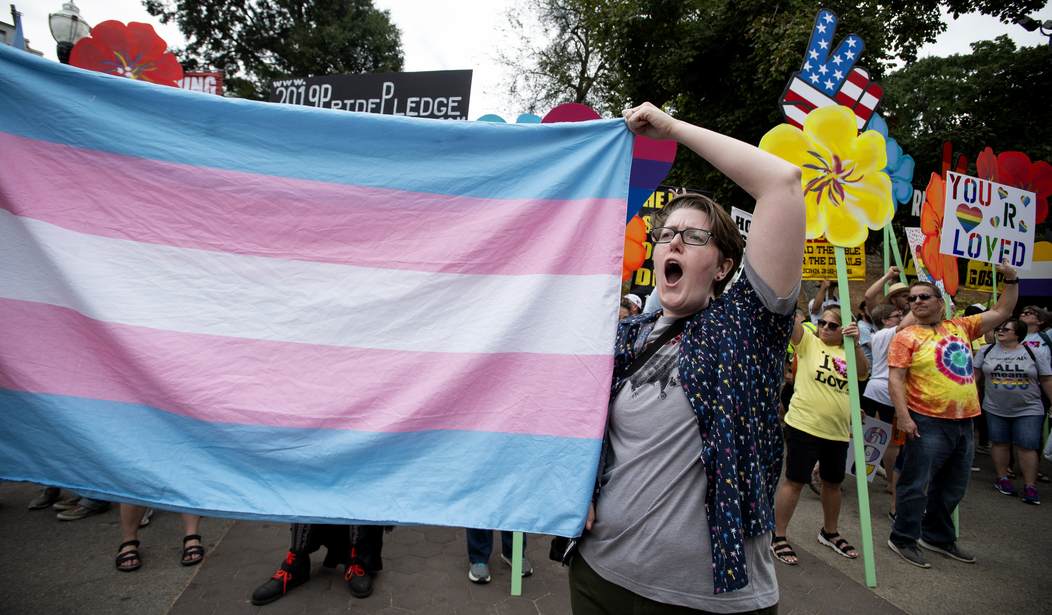Earlier this month the Free Press published a first hand account of what was happening at a pediatric gender identity clinic in St. Louis, Missouri. The author of that piece was Jamie Reed a woman who’d worked at the clinic for four years. As she described it, she left because she became convinced the clinic was doing harm to children:
The girls who came to us had many comorbidities: depression, anxiety, ADHD, eating disorders, obesity. Many were diagnosed with autism, or had autism-like symptoms. A report last year on a British pediatric transgender center found that about one-third of the patients referred there were on the autism spectrum.
Frequently, our patients declared they had disorders that no one believed they had. We had patients who said they had Tourette syndrome (but they didn’t); that they had tic disorders (but they didn’t); that they had multiple personalities (but they didn’t).
The doctors privately recognized these false self-diagnoses as a manifestation of social contagion. They even acknowledged that suicide has an element of social contagion. But when I said the clusters of girls streaming into our service looked as if their gender issues might be a manifestation of social contagion, the doctors said gender identity reflected something innate.
Reed’s story made quite a splash so it was inevitable that there would be some pushback. Today that pushback arrived courtesy of the St. Louis Post-Dispatch.
Almost two dozen parents of children seen at the clinic, which opened in 2017, say their experiences sharply contradict the examples supplied by Jamie Reed, a case manager who left the WU center after being employed there for more than four years. Reed outlined her concerns in an article published online Feb. 9; her sworn affidavit, which included additional allegations, was released that day by Missouri Attorney General Andrew Bailey, who is leading a state investigation…
Reed, of south St. Louis County, alleges that families were rushed toward medical interventions without regard to whether adolescents were in extreme mental health distress. She claims side effects were glossed over, and drugs were prescribed even if one parent did not consent.
But parents interviewed by the Post-Dispatch cast doubt on Reed’s ability to know what happened inside exam rooms as an employee who did not have a medical or managerial role, and whom they rarely saw. The case manager’s job duties, as described in a Washington U. posting, comprise patient intake, scheduling appointments and providing information about community resources to families…
Many parents spoke on the condition of anonymity to protect their children. Anti-trans rhetoric has heated up in the fallout from Reed’s allegations, energizing lawmakers in the Republican-led Capitol.
Let me say I am immediately curious about how the Post-Dispatch tracked down 20+ former patients. My guess is that they had some help, either from the clinic itself, or alternatively from a group of self-selected parents who put themselves forward to contradict Reed’s story. The fact that many are speaking anonymously means no one can really check to see how this all came together. That said, there is one parent mentioned in the story who seemed to echo some of Reed’s concerns.
One St. Louis-area parent interviewed by the Post-Dispatch questions the need for transgender centers across the board, saying they push families to funnel all their concerns about their child into one issue. The parent’s teenager has been diagnosed with a long list of mental and behavioral issues and, in the past, has threatened suicide…
The teenager has been seeing a psychiatrist for about a decade, but with the teen’s complicated history, the parent wants additional time in therapy before any future medical interventions. The parent believes more therapy — focused on the other mental health concerns — could resolve the gender dysphoria.
“They have not forced us to do anything,” the parent said about the WU center.
But there was still pressure. Doctors and therapists often mentioned the suicide risk of untreated transgender youths, which the parent took as a scare tactic. The conflict has been a strain on the family.
The story also features a former clinic worker who took aim at Reed’s behavior at the clinic:
Jess Jones, who identifies as nonbinary and uses “they” pronouns, worked at the Transgender Center from 2018 until 2020 as an educational liaison. Jones led trainings at schools and coordinated with teachers, administrators and families to ensure students felt safe.
Jones bristled at the way they said Reed sometimes spoke about patients.
“How passionately she worked as a case manager felt at odds with how she talked about transgender people,” Jones said.
Jones recounted Reed telling them that “misgendering,” or using the wrong gender or pronouns to describe a person, was “exposure therapy” that would keep trans children from being coddled and encourage them to develop a thick skin.
Reed didn’t respond to a request for comment but her lawyer gave one on her behalf: “It is not surprising to me that the negatively affected families have not yet come forward. Parents have a strong instinct to protect their children’s privacy …” Like me, Reed and her attorneys seem to be wondering where this group of parents came from and how representative they are of the actual clientele.








Join the conversation as a VIP Member